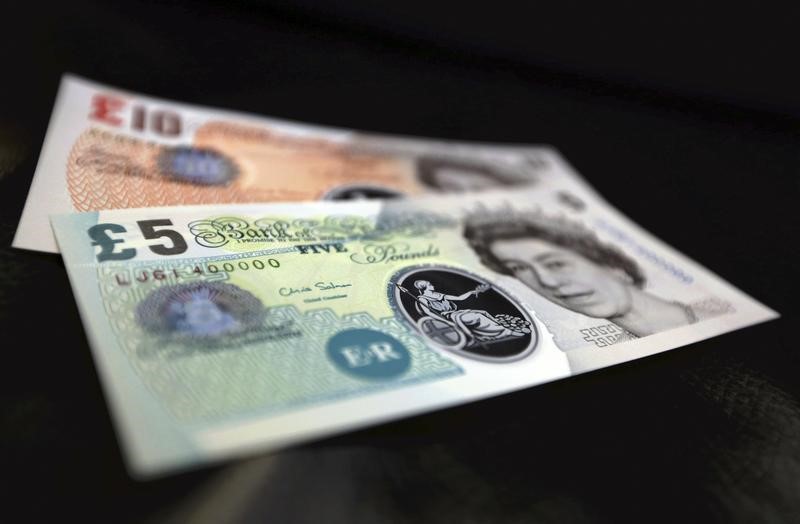By Jemima Kelly
LONDON (Reuters) - Sterling took a breather from a brutal sell-off on Tuesday, edging higher as investors shrugged off poor British manufacturing data they judged was not quite bad enough to send the battered currency any lower.
On a trade-weighted basis, the pound has put in its worst three-month performance since the depths of the financial crisis seven years ago, losing almost 9 percent since the start of December in a market spooked by worries that Britons may vote to leave the European Union in a referendum on June 23.
Data showing British factories suffered their weakest month in almost three years in February as demand at home slowed and exports fell initially pushed the pound down further to an intraday low of $1.3909.
But with so much bad news already baked in, also including a progressive push-back of expectations of when the Bank of England might raise interest rates, analysts said it would take more than another set of weak data to push the currency much lower.
By 1000 GMT sterling was trading up 0.2 percent at $1.3947 and up 0.3 percent against the euro at 77.90 pence.
"When you think about how little hiking has been priced in and, to some degree, even (rate) cuts, then is another bit of softer data really going to make a huge difference?" said HSBC currency strategist Dominic Bunning.
"The bias of the market is already short sterling and is already looking for the Bank of England to remain very dovish."
A faster downward move would be unlikely at this stage, assuming no major swing towards a clear "Out" vote in June, he said.
A key concern for investors is that a "Brexit", as well as pushing rate hike expectations back further still, would threaten the huge foreign investment flows Britain needs to balance its current account deficit, one of the biggest in the developed world at around 4 percent of output.
Swiss bank UBS said on Monday sterling could be dragged down to parity with the euro if Britain voted to leave, to which the bank assigns a 40 percent chance.
Some think the sell-off may have been too steep.
"We cannot help but notice some signs that the recent selloff in sterling is starting to look overdone and may pause in the very near term," wrote Credit Agricole (PA:CAGR) strategists in a research note to clients.
